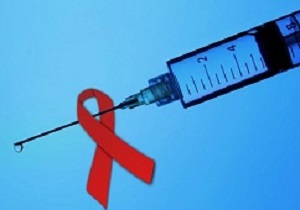 Although some 19.5m HIV-infected people are receiving antiretroviral treatment, a substantial treatment gap leaves many millions of people at risk of Aids-related diseases and, if unaware of their status, likely to infect others. A PLOS Medicine Special Issue: Advances in HIV Prevention, Treatment and Cure spotlights the issues and important research.
Although some 19.5m HIV-infected people are receiving antiretroviral treatment, a substantial treatment gap leaves many millions of people at risk of Aids-related diseases and, if unaware of their status, likely to infect others. A PLOS Medicine Special Issue: Advances in HIV Prevention, Treatment and Cure spotlights the issues and important research.
HIV infection continues to pose a critical risk to health in many countries. UNAIDS estimates that as of 2016 the total HIV-infected population was 36.7m, including 1.8m people newly infected that year. Although some 19.5m people are receiving antiretroviral treatment, a substantial treatment gap leaves many millions of people at risk of Aids-related diseases and, if unaware of their status, likely to infect others. Research is seeking new approaches to prevent, treat, and ultimately cure HIV infection.
The PLOS Medicine Special Issue: Advances in HIV Prevention, Treatment and Cure, edited by Dr Linda-Gail Bekker of the Desmond Tutu HIV Centre, University of Cape Town; Dr Steven Deeks of the University of California – San Francisco; and Dr Sharon Lewin of the Peter Doherty Institute of Infection and Immunity, University of Melbourne and Royal Melbourne Hospital, includes research papers and commissioned content contributed by leaders in the field.
Alongside research papers, the special issue includes commissioned content contributed by leaders in the field.
The call for content said: “HIV infection continues to pose a critical risk to health in many countries, with 2.1m people (including 150,000 children) estimated by UNAIDS to have been newly infected in 2015. Due to intensive efforts to diagnose and treat people with HIV, 18.2m people were receiving antiretroviral therapy according to the most recent estimates. However, given an estimated total HIV-infected population of 36.7m at the end of 2015, a substantial treatment gap leaves many millions of people at risk of Aids-related diseases and, if unaware of their status, likely to infect others.
“Ambitious global targets propose that, by 2020, 90% of people infected with HIV should know their status, with 90% of people diagnosed with HIV infection to be receiving antiretroviral treatment and 90% of people receiving treatment to have viral suppression. In addition to research seeking to meet and evaluate progress towards these targets, we encourage submission of studies aimed at the development of new and improved antiretroviral treatments, which will be important contributors to closing the treatment gap.
“Although proven approaches to prevention of HIV infection are available, including condom use, pre-exposure prophylaxis and male circumcision, high-quality implementation research is needed to inform the design of effective interventions and programmes that are tailored to key populations or settings, and such studies will be included in the issue. Because there are large populations at risk of HIV infection in low- and middle-income countries, development of an effective vaccine against HIV is a key area of research: for the special issue, we will welcome reports of translational and clinical studies aiming to evaluate new and existing vaccination strategies.
“In addition to prevention and management of HIV infection, submission of research studies aiming to understand long-term control of HIV, and seeking to be achieve cure of HIV infection, will be welcome for the special issue. Studies aimed at characterization and management of co-morbidities – a challenge growing in proportion to the size of the population of people with HIV on long-term antiretroviral treatment – will also be considered.
“For this issue, the editors are inviting reports of high-quality research studies with the potential to inform clinical practice or thinking, focused on: state of the global HIV epidemic – large-scale epidemiological studies addressing important topics, including progress towards UNAIDS’ 90-90-90 targets and the status of key populations; HIV prevention – clinical research aimed at development of vaccines, drugs and biomedical approaches; clinical and epidemiological studies seeking to characterize and improve management of HIV infection and co-morbidities; scientifically rigorous and practically relevant implementation research studies focused on HIV prevention and treatment, especially in low- and middle-income countries; and towards a cure for HIV infection – a translational and clinical studies aiming to achieve control or elimination of HIV.”
Research includes:
[link url="http://journals.plos.org/plosmedicine/article?id=10.1371/journal.pmed.1002434"]Treatment guidelines and early loss from care for people living with HIV in Cape Town, South Africa: A retrospective cohort study[/link]
[link url="http://journals.plos.org/plosmedicine/article?id=10.1371/journal.pmed.1002433"]A combination intervention strategy to improve linkage to and retention in HIV care following diagnosis in Mozambique: A cluster-randomized study[/link]
[link url="http://journals.plos.org/plosmedicine/article?id=10.1371/journal.pmed.1002432"]Virological response and resistance among HIV-infected children receiving long-term antiretroviral therapy without virological monitoring in Uganda and Zimbabwe: Observational analyses within the randomised ARROW trial[/link]
[link url="http://journals.plos.org/plosmedicine/article?id=10.1371/journal.pmed.1002436"]Prospects for passive immunity to prevent HIV infection[/link]
[link url="http://journals.plos.org/plosmedicine/article?id=10.1371/journal.pmed.1002422"]HIV prevalence and behavioral and psychosocial factors among transgender women and cisgender men who have sex with men in 8 African countries: A cross-sectional analysis[/link]
[link url="http://journals.plos.org/plosmedicine/article?id=10.1371/journal.pmed.1002407"]Contemporary disengagement from antiretroviral therapy in Khayelitsha, South Africa: A cohort study[/link]
[link url="http://blogs.plos.org/speakingofmedicine/2017/03/28/plos-medicine-special-issue-advances-in-hiv-prevention-treatment-and-cure/"]PLOS Special Issue[/link]
[link url="http://blogs.plos.org/speakingofmedicine/2017/03/28/plos-medicine-special-issue-advances-in-hiv-prevention-treatment-and-cure/"]Call for content[/link]
